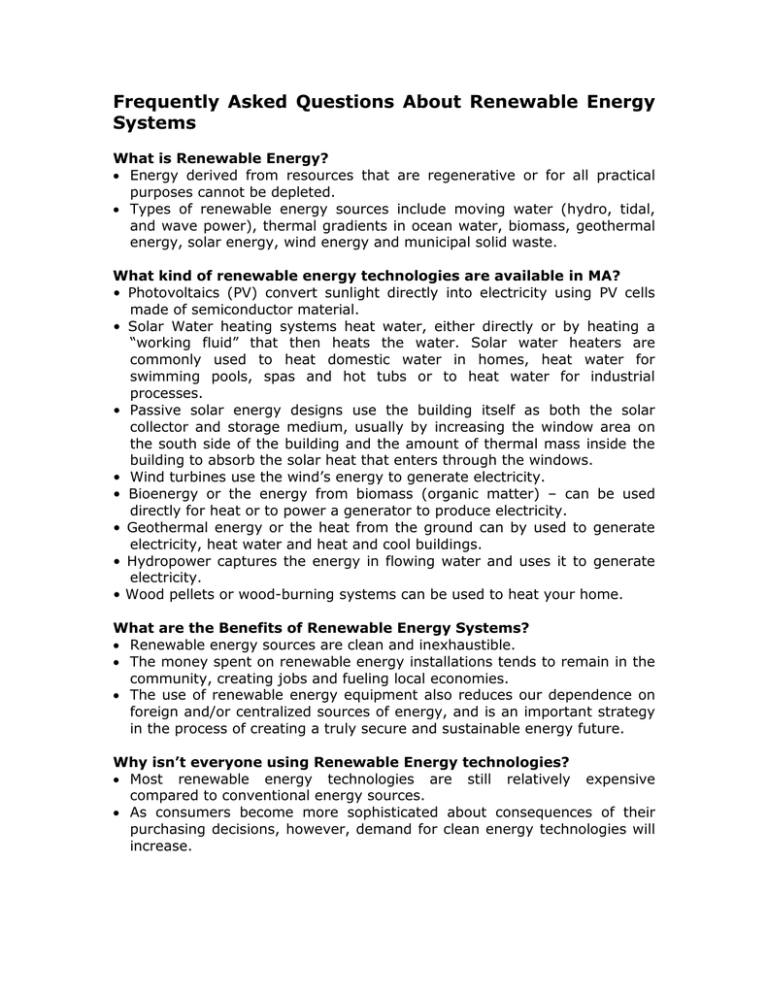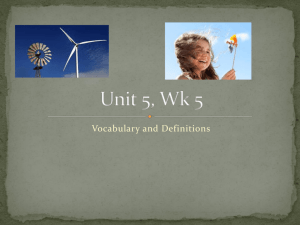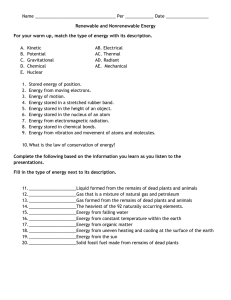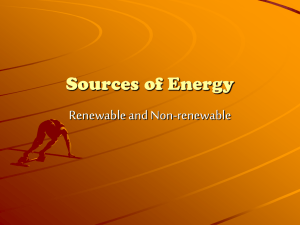Frequently Asked Questions About Renewable Energy Systems
advertisement

Frequently Asked Questions About Renewable Energy Systems What is Renewable Energy? • Energy derived from resources that are regenerative or for all practical purposes cannot be depleted. • Types of renewable energy sources include moving water (hydro, tidal, and wave power), thermal gradients in ocean water, biomass, geothermal energy, solar energy, wind energy and municipal solid waste. What kind of renewable energy technologies are available in MA? • Photovoltaics (PV) convert sunlight directly into electricity using PV cells made of semiconductor material. • Solar Water heating systems heat water, either directly or by heating a “working fluid” that then heats the water. Solar water heaters are commonly used to heat domestic water in homes, heat water for swimming pools, spas and hot tubs or to heat water for industrial processes. • Passive solar energy designs use the building itself as both the solar collector and storage medium, usually by increasing the window area on the south side of the building and the amount of thermal mass inside the building to absorb the solar heat that enters through the windows. • Wind turbines use the wind’s energy to generate electricity. • Bioenergy or the energy from biomass (organic matter) – can be used directly for heat or to power a generator to produce electricity. • Geothermal energy or the heat from the ground can by used to generate electricity, heat water and heat and cool buildings. • Hydropower captures the energy in flowing water and uses it to generate electricity. • Wood pellets or wood-burning systems can be used to heat your home. What are the Benefits of Renewable Energy Systems? • Renewable energy sources are clean and inexhaustible. • The money spent on renewable energy installations tends to remain in the community, creating jobs and fueling local economies. • The use of renewable energy equipment also reduces our dependence on foreign and/or centralized sources of energy, and is an important strategy in the process of creating a truly secure and sustainable energy future. Why isn’t everyone using Renewable Energy technologies? • Most renewable energy technologies are still relatively expensive compared to conventional energy sources. • As consumers become more sophisticated about consequences of their purchasing decisions, however, demand for clean energy technologies will increase. • Adopters of clean energy technologies have the added challenge of dealing with a regulatory infrastructure geared to large, centralized power plants and fossil fuel delivery system. Can I use wind or solar for my home or business? How do I know if I can use it in my area? • Most places have enough renewable energy sources to meet some or all of their needs with one or more renewable energy system. A hybrid system – an installation that uses a combination of different renewable technologies (i.e. PV and wind turbine) – is better suited to Massachusetts varied typography and changing seasons. • You can get more specific information by contacting a Massachusetts renewable energy designer such as Mass Clean Energy Center. What financial assistance is available to me as a home or business owner? • At the federal level, a tax credit is available for solar and energy efficiency. It offers tax credits to consumers for residential solar systems, both solar electric and solar hot water. The allowable tax credit is 30% of the qualified solar system expenses. • At the state level there are numerous grants and loans administered by the state and WMECO. Refer to Mass Clean Energy Center and Center for Eco Technology. What is net metering? • Consumers who have installed grid-connected renewable energy systems can participate in a protocol called net metering in which the electricity produced by the renewable energy system can flow back in to the utility grid. • It is important because it provides a simple, standardized protocol for connecting the renewable energy system to into the grid that ensures safety and power quality. • In addition, new metering allows renewable energy system owners to receive full value for the electricity they produce over a billing cycle without installing expensive battery storage.





